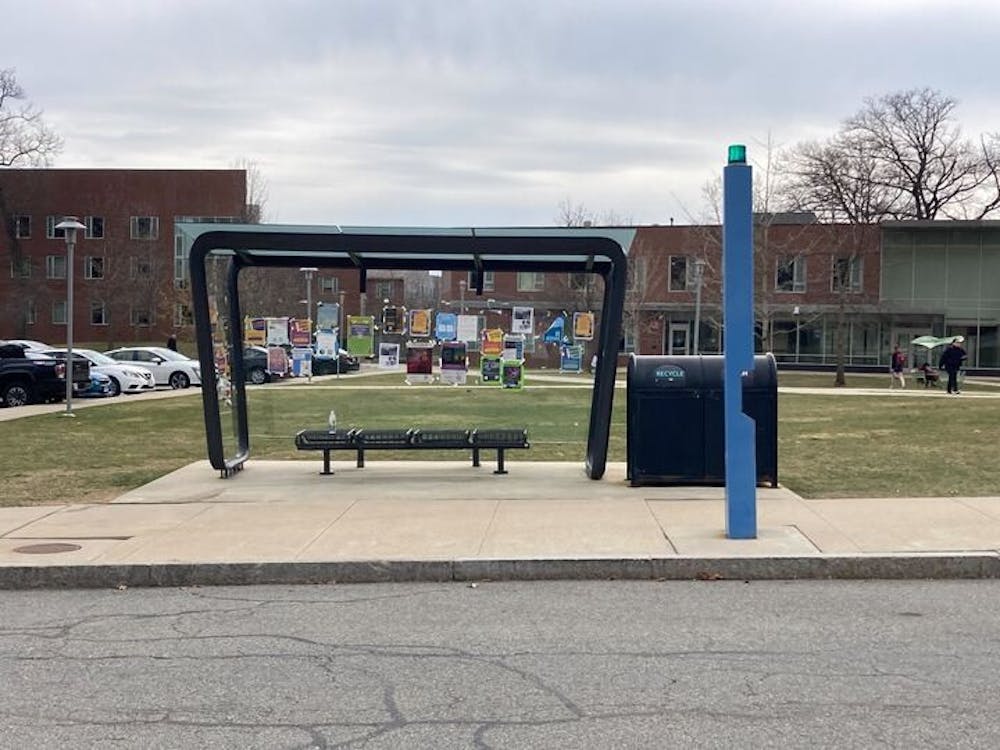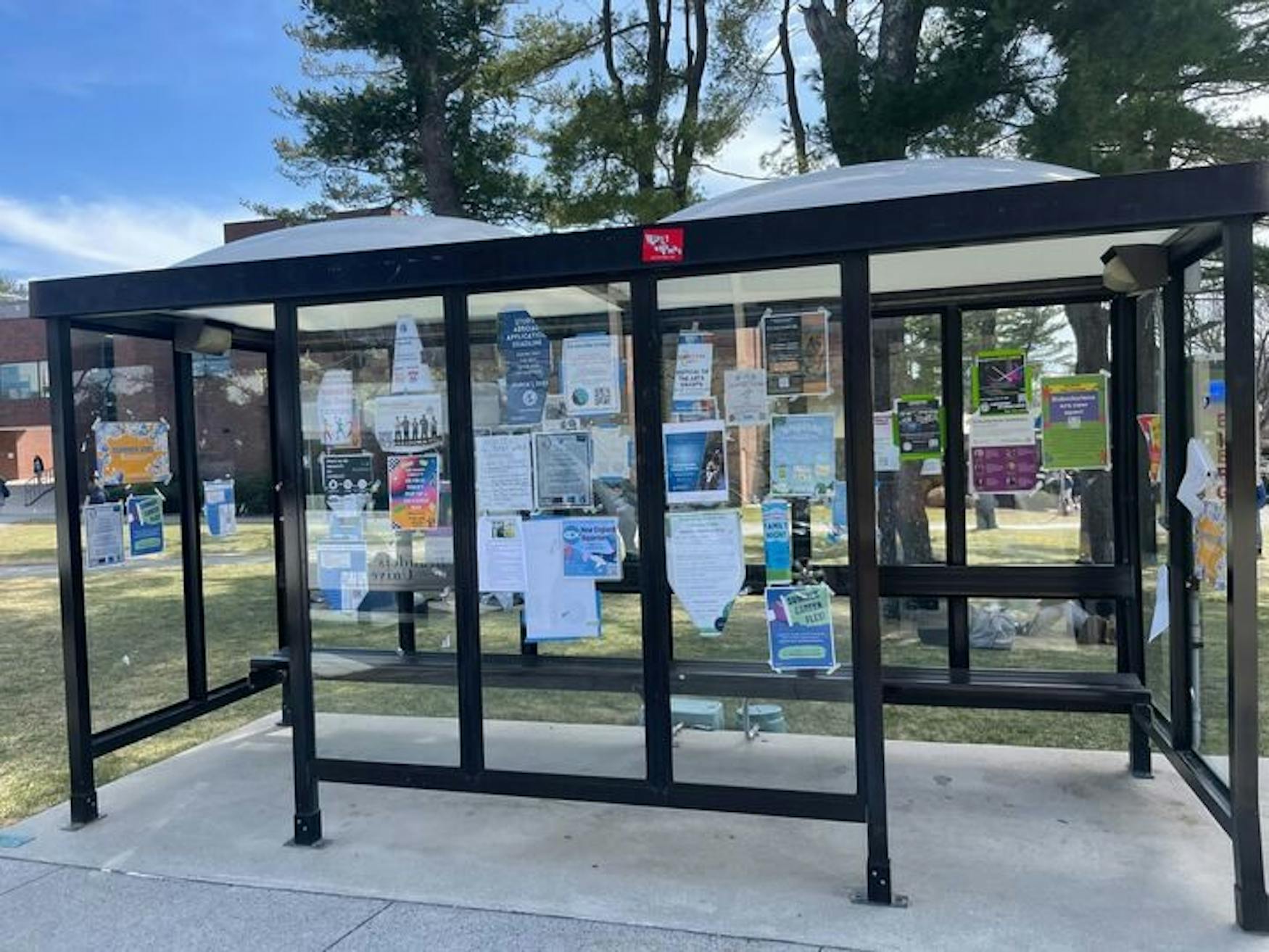Shuttle driver Bob Castel says farewell after six years of service
Brandeis shuttle driver Bob Castel spoke candidly to the Justice about his unconditional care for students, his takes on how to be a better passenger, and efficiency within the Branvan system.
With Brandeis pursuing partnership with new transportation services, campus shuttle driver Bob Castel spoke with the Justice on his experiences with students, changes he’d recommend for future contracts, and tips on how to be a respectful passenger.
When approached for an interview about his working conditions as a shuttle driver on the campus route, Bob Castel seemed uninterested in sharing his perspective, thinking his daily routine too dull for a profile. However, it wasn’t long until he started speaking passionately about the treatment he received as one of the most essential members of the Brandeis community. It was clear that at first, he simply didn’t believe someone was interested in hearing it.
“They [the administration] think we’re machines. It’s like they don’t even see us. I’m a human being,” he told the Justice in a March 24 interview during the last couple of loops of his shift.
As many students may know, the campus shuttle runs from 7 a.m. to 2 a.m. on a 15-minute loop. But few are aware that Castel is responsible for the first nine-and-a-half hours of that runtime, Monday to Friday, with an hour break for lunch. When asked about his daily routine, he replied, “there’s not much to say — it’s around and around and around.”

Fifty years ago, Castel immigrated from Haiti to New York, where he drove an elementary school bus for seventeen years. Then, he moved to Boston to be closer to his sister and has worked with Joseph’s Transportation ever since. Before coming to Brandeis, Castel drove a Tufts University shuttle, an experience which has informed his criticisms of Branvan services. “At Tufts, we knew who was in charge, and it was very efficient. Here, it’s different,” Castel said. For example, Tufts outfitted their routes with much more frequent bus stop posts, rather than the handful of bus shelters on the campus route. The Tufts shuttle would stop at every post, and under no circumstances would it stop at any other point, regardless of students waiving or flagging down the driver. Castel says that this was a much better system: in case of an accident, students can prove for liability reasons that they were waiting for the shuttle in the correct place, and additionally, the driver can stay on schedule and refrain from frequently stopping for tardy passengers.
In fact, Castel stressed several simple changes to passenger behavior that make drivers’ lives much easier, presented below:
1. Be on time. Drivers count on tiny gaps in between loops to use the restroom and get food and beverages. Stopping for late students jeopardizes that essential personal time.
2. Board and depart the shuttle at the designated stops. Until Brandeis implements more bus stops, it’s important that drivers stay on schedule by only stopping when they have to.
3. If you absolutely must board or depart late or in an undesignated area, do so quickly and in a focused manner. Castel spoke of students casually moseying their way to his van, on their phones, all the while not knowing that he was counting on that loop being his only time for the next five hours to use the restroom. Despite this, Castel will choose to get students from Mandel to the International Business School on-time for their classes over his own needs every time; take that into account when you’re dawdling on the Rabb steps. “You see kids everywhere, expecting you to stop for them,” Castel says. “I expect you to run.”
Additionally, Castel indicated that the lack of one-way signs throughout Loop Road was extremely worrying to him — visitors and delivery drivers often go the wrong way, missing the infrequent signage that the road becomes a one-way at a certain point. “I swear,” he said, “if they don’t put in more signs, one day there will be something fatal.” Castel says he doesn’t know anything about the tragic bus crash that occurred in November 2022 and that drivers have been kept in the dark about it by administration.
Despite the grueling shifts, physical struggles, and other frustrations, Castel said he was sad to be leaving Brandeis. “Even though the schedule is way too tight, the kids make time to learn my name, and I learn theirs,” he said. Castel has two grown children in high-earning jobs who would be happy to support him, but he emphasized that he’ll never stop providing for them — he gushes about his daughter, who works as a nurse practitioner in Virginia, and shows off the watch she bought him.
What Castel implores of the Brandeis community is to really see the workers they’ve deemed invisible, who contribute so much to our lives. Without Castel, residents of Foster Mods and the Charles River Apartments would be hung out to dry. In exchange for his reliable presence at 7 a.m. sharp, he’d appreciate some recognition, echoing the sentiments of the similarly-exhausted facilities workers who spoke to the Justice last fall.
“They don’t take a good look at the human element,” he said. “They don’t see the drivers. We’re human, too.”



Please note All comments are eligible for publication in The Justice.